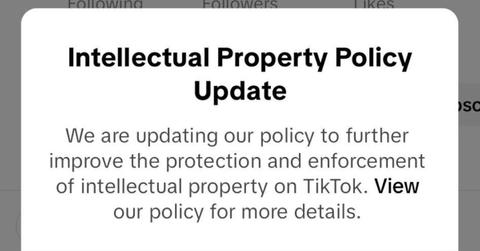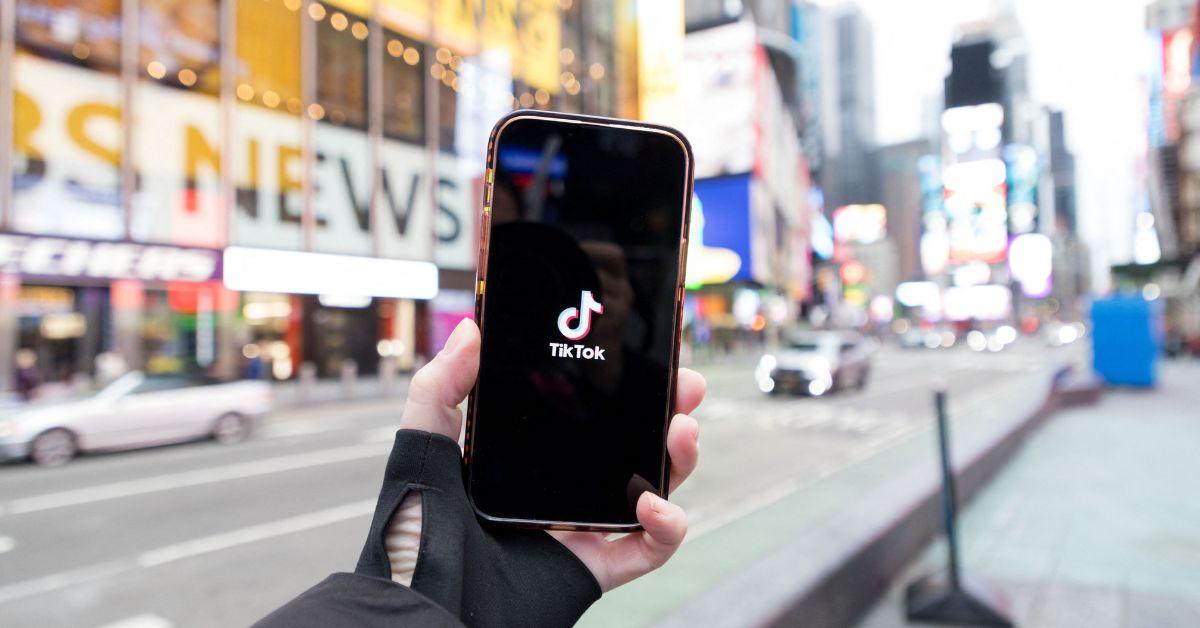TikTok's Latest Pop-Up Has Many Wondering About Its Intellectual Property Policy
TikTok's updated intellectual property policy could be a big deal ... or not.
Published March 28 2025, 11:10 a.m. ET

If you've scrolled through your TikTok feed any time in late March, you probably saw a pop-up that notified you about a change to TikTok's intellectual property policy. The update says, "We are updating our policy to further improve the protection and enforcement of intellectual property on TikTok."
Following the update, some users were alarmed and wondered what it might mean for which pieces of content are now protected. Here's what we know about the policy and what ramifications it might have once it goes into effect on April 26.

What does TikTok's intellectual property policy update mean?
This new policy is designed to ensure that users can no longer use copyrighted materials in their videos. The policy states that any user who is found to infringe on copyrighted materials, whether they be music, videos, or trademarks, could have their videos removed. Repeat offenders could be banned from the app altogether. TikTok has long prohibited the use of these kinds of materials, but this policy update suggests that those rules will now be enforced more strictly.
The policy does offer a way to appeal the ruling, but many users are unclear about what exactly might be covered under the policy and which accounts are now in the most danger of violating it. There are accounts like those that just repost snippets from movies that seem like they might be in danger, but some are wondering whether things like song covers or music tutorials might fall into this bucket.
As is the case with most intellectual property policies, the policy does have a carve out for fair use, which is when a creator uses pre-existing copyrighted material as part of criticism, satire, or educational material.
Basically, if you're leveraging an existing work, you have to do something to it other than reproduce it exactly as it was originally made.
TikTok has also introduced online forms that will allow copyright holders to file claims against accounts, which has led some to wonder whether TikTok plans to be quite strict about this new policy. It's unclear, also, whether it will apply to videos that were posted before the policy update became official, or only to videos that are posted after the policy actually takes effect.
It's unclear whether this new policy signals a fundamental transformation of what TikTok is or whether it's just an update designed to tighten the rules around the margins. Some users have signaled panic, suggesting that their accounts could be banned if they don't delete pre-existing videos that violate the policy.
The best approach, though, is likely to see how the policy plays out after it's implemented. It seems like most accounts will get a warning if they violate the policy and will then be given time to fix any other videos that might be in violation of it. It's possible that this new update will feel like a relatively small deal, but it's hard to say for sure until it's actually implemented.